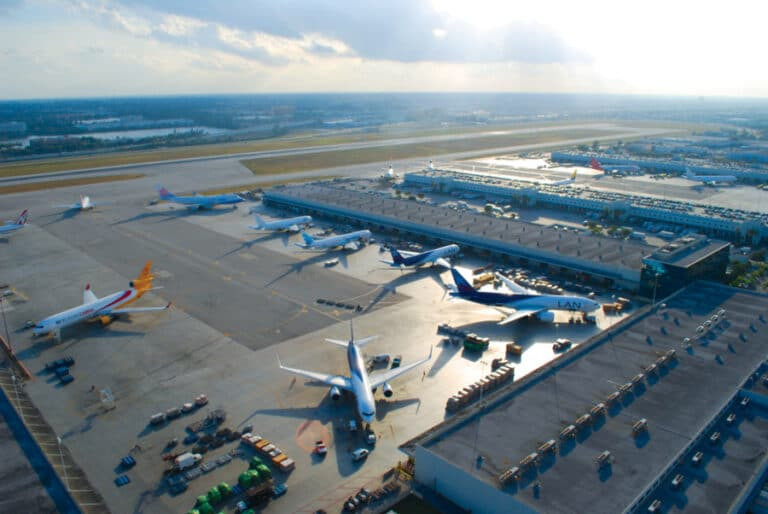Miami-Dade Aviation Department (MDAD) has gained final approval from the US Department of Commerce to designate Miami International Airport’s entire 3,200-acre land parcel as a Foreign Trade Zone (FTZ) magnet site.
The magnet site designation allows existing or prospective airport tenants to operate manufacturing, warehousing and/or distribution centres on airport property, and have their federal tariffs deferred, reduced or eliminated – providing time and cost savings for approved importers and exporters.
The site- an expansion of Miami-Dade County’s existing FTZ 281 – will allow companies to receive and process materials and merchandise with reduced or eliminated Customs duties upon entry into the country at MIA.
Miami-Dade County mayor, Carlos A. Gimenez says: “The MIA FTZ creates an attractive business opportunity for companies to begin or expand their operations directly on-site at the passenger and cargo gateway of the Americas.
“Congratulations to the MIA team for achieving this significant milestone, which has strong potential for new business revenue and job creation in our community.”
Companies handling high-traffic commodities at MIA including pharmaceuticals, electronics, textiles, footwear, auto parts, aircraft parts, avionics, machinery equipment, consumer goods and perishables – are expected to be FTZ applicants.
To be an operator, companies must complete an application with PortMiami – the grantee of FTZ 281 – and then receive approval from US Customs and Border Protection, a process that takes approximately 30 days.
MDAD chief of staff, Joseph Napoli says: “Our FTZ magnet site approval dovetails perfectly with our growth strategy as one of the world’s leading pharma hubs, as well as our efforts to become the e-commerce hub of the Americas.
“We look forward to opening new doors at MIA within the trade and logistics industries.”
FTZ 281 encompasses land from S.W. 8th Street to the Broward County line, and from Miami Beach in the east to the Urban Development line in the west.
Companies within the FTZ are able to defer paying duties only when products exits the site, reduce duties on combined finished products instead of on each individual product, and eliminates duties on products being imported to the site and then exported.
In 2016, MIA’s air trade was valued at $57.3 billion – representing 92 per cent of the value of Florida’s total air trade and 40 per cent of the State’s total trade with the world.



